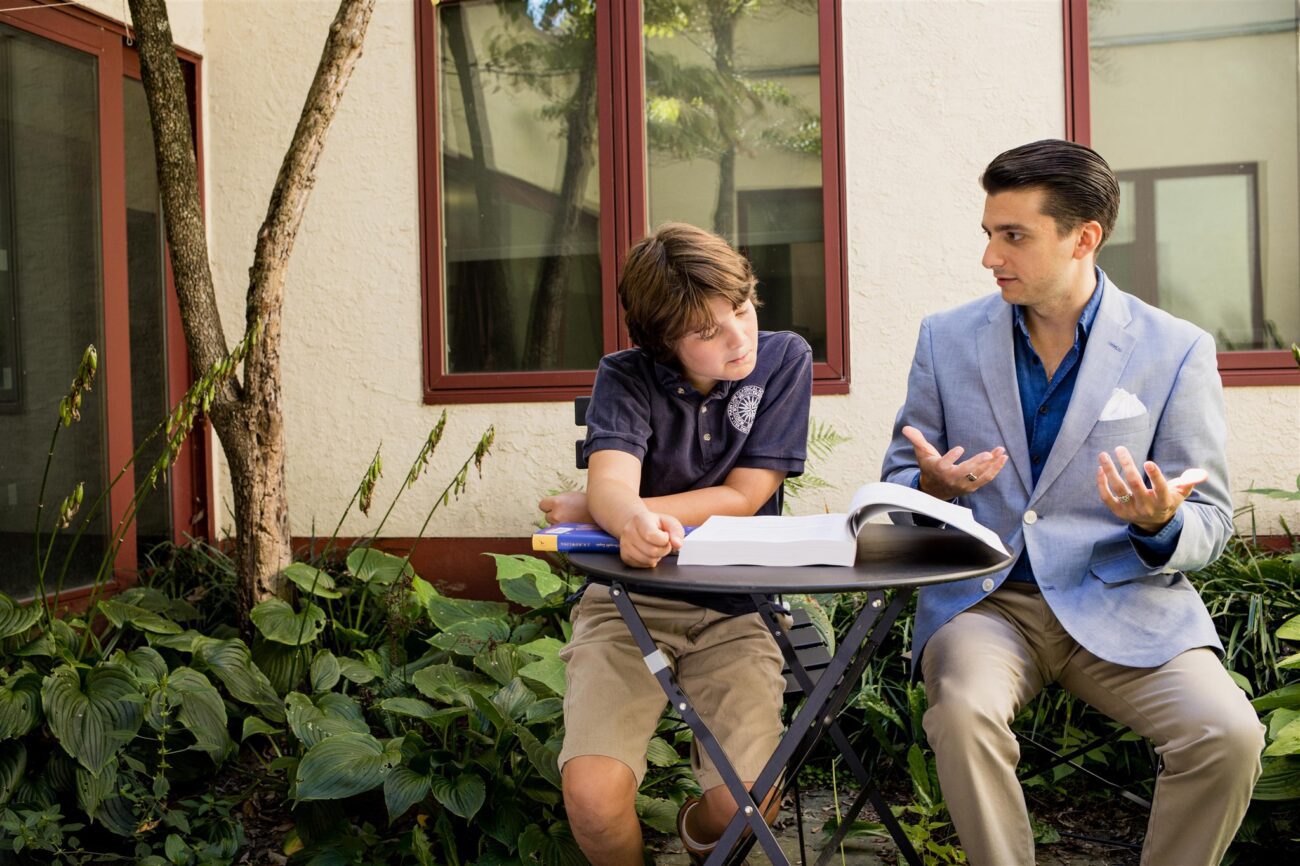Class Act
The academic success of the students at Bryn Mawr’s Main Line Classical Academy validates that children are never too young to learn great things.

On any given school day, you could walk the halls of Main Line Classical Academy in Bryn Mawr and hear the melodic sounds of a student playing the piano, the confident voice of a student reciting a passage in French, or the distinct buzz of a project in robotics. It’s simply the daily sound of enthusiastic and engaged learning at MLCA, and it’s the sound that Asya and Matt Sigelman envisioned hearing when they decided to open the school back in 2015.
Yes, the Main Line is home to a plethora of prestigious private schools, but several key elements set MLCA apart from all the rest. In both its lower and upper schools, MLCA focuses on a classical, or liberal arts, education for its students. “My husband and I recognized that the serious mastery and acquisition of learning and knowledge didn’t start until middle or even high school for the both of us,” says Asya Sigelman, Head of School at MLCA. The couple, however, believes elementary-aged students are more than capable of mastering a curriculum filled with the study of languages and the humanities, STEM, art, and music. “So the impetus for the school is really encapsulated in our motto ‘because children are never too young to learn great things,’” continues Sigelman, who is also a professor at Bryn Mawr College. “It’s the notion of starting young and having very high academic expectations from a very young age.”
At MLCA, students discover that the real key to understanding another culture is through language. So, beginning in Kindergarten, students start studying French. Then in fourth grade, students continue studying French while also beginning to learn Latin. “We chose those languages very purposefully because Latin is the mother language of French,” explains Sigelman. “So all of our students get this experience of a modern romance language, French, and then have the experience of seeing its roots in Latin.” MLCA also offers an after-school, immersive Modern Hebrew language instruction for interested students.
Sigelman often tells prospective parents that MLCA is a “both sides of the brain school.” While a large focus of the curriculum is on the humanities and language, STEM is also a crucial part of a student’s education. “Our focus on STEM is the main way we differ from other classical academies and schools in the Philadelphia area,” she says. “Math, science, and technology are hugely important to us, and we actually pride ourselves on a very strong STEM program that includes both robotics and coding classes.” To ensure a very high academic standard, MLCA has specialists in their respective fields teaching students. “From kindergarten onward, a student experiences between six to eight different subjects and six to eight different teachers in the course of a day,” says Sigelman. “So a student will have a French lesson with a French teacher, a math lesson with a math teacher, a science lesson with a science teacher, and so forth. It’s a very dynamic day academically and quite intense.”
Art Studio and Art History classes round out the MLCA curriculum. Students study masterpieces of the great artists throughout history, while also having the opportunity to create their own works of art. In Music Theory, grades K through 3rd take group music classes, which include the study of music theory and participation in violin ensemble. Students in those same grades also take weekly piano lessons. After 3rd grade, students can choose whether to continue with their studies or pursue other interests. “Some students become really serious in piano,” says Sigelman. “We actually have had many of our students go on to the Nelly Berman School of Music in Haverford to continue with their instruction.”
Although the curriculum is rigorous, Sigelman insists MLCA acknowledges that childhood is a special time for wonder, magic, fun and exploration. “The way I would describe the atmosphere of Main Line Classical Academy is joyful rigor,” says Sigelman. “It’s very, very important for us not to stifle the joy.” As a parent to five children, aged four to 13, Sigelman knows firsthand the importance fun has in education. The small school size allows for a warm, nourishing environment with an intimate class size of about 13 students in each grade. “We give more recess during the day than many of the local public schools,” says Sigelman. “It’s very important for us that kids have that outlet running outside.” Some of the classes that students in the lower school have are geared towards outdoor hands-on exploration. “We’re very mindful that we have to be age appropriate and that kids need plenty of outlets for energy and creativity, but we also believe that true creativity builds on mastery,” she continues. While MLCA is a very small community, it is still ethnically and culturally diverse. “What we are trying to do at our school is inspired by what education is doing in Europe, Russia, Korea and China,” says Sigelman. “In these areas, they have high academic expectations from an early age. Parents of our students want to see that same mastery of subjects.”
Now in its eighth year, with enrollment increasing every year, Sigelman knows that the idea to build a classical academy on the Main Line definitely was the right one. “Every day I’m there, it’s just incredible to see what these students are accomplishing,” she says. “It truly is a wonderful thing to behold.”



NO COMMENTS